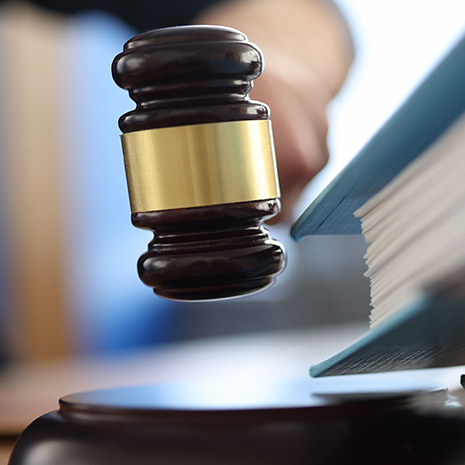Demystifying the Process of Federal Appeals: What You Need to Know
Browsing the detailed world of government charms can typically feel like passing through uncharted waters for those not familiar with the process. Recognizing the subtleties of appellate court jurisdiction, the intricacies of filing a notification of charm, offering a compelling brief, and making an influential oral disagreement are essential components that can substantially influence the outcome of a case. By untangling the layers of complexity surrounding government charms, people can obtain a more clear insight into the devices that govern this critical point of the legal system.
Recognizing Federal Appeals Refine
Looking into the complex world of the federal charms process reveals a systematic and organized journey with the judicial system - alaska federal appeal attorneys. Federal allures function as an essential device for reviewing choices made by lower courts. Understanding this process is crucial for anyone involved in legal process at the federal level
The procedure usually starts with an event dissatisfied with a reduced court's ruling filing a notice of charm. This triggers an evaluation by a greater court, where a panel of judges assesses the lawful disagreements offered by both events. Briefs detailing the lawful reasoning behind each event's placement are sent, and oral arguments may be heard to clear up complicated concerns.
The appellate court's decision is based on an extensive examination of the lower court's proceedings and the arguments offered. When the appellate court gets to a decision, it can attest, reverse, remand, or customize the lower court's judgment, offering clearness and finality to the lawful dispute.
Appellate Court Territory Discussed

Appellate courts have jurisdiction over certain kinds of cases, typically those entailing lawful errors, step-by-step issues, or concerns of regulation instead of accurate disputes. The jurisdiction of appellate courts is normally detailed in laws and legislations that control the court system. Comprehending appellate court jurisdiction is essential for celebrations associated with the charms procedure as it identifies whether a case is eligible for evaluation and the level to which the appellate court can intervene in the reduced court's choice.
Declaring a Notice of Allure
The first step in commencing the government appeals procedure entails submitting a Notice of Allure with the appropriate appellate court. federal appeals lawyers in seattle washington. This critical record formally informs the court and the other celebrations entailed in the situation that the appealing event intends to look for an evaluation of the lower court's decision. Filing a Notification of Charm is a strict procedural need that establishes the appellate procedure in movement
When preparing the Notification of Allure, it is necessary to ensure conformity with the certain rules and standards of the pertinent appellate court. The record must normally consist of details such as the instance name, the lower court's name, the date of the judgment being appealed, and a succinct statement showing the grounds for the appeal.
When submitting a Notice of Appeal,Timeliness is of the essence. Missing the target date for sending this record can lead to the appeal being disregarded, underscoring the relevance of precise and prompt initiation of the allures procedure. It is suggested to seek legal advice to navigate the intricacies of filing a Notice of Appeal properly.
Instruction and Oral Disagreement
In the appellate process, offering written briefs and participating in oral disagreements play crucial duties in advocating for the appealing event's setting prior to the appellate court. Briefs are detailed legal files that outline the celebrations' arguments, lawful authorities, and evaluation supporting their placements. These composed entries offer the court with a detailed understanding of the truths of the case, the pertinent legislation, and why the appealing event believes the lower court's choice ought to be overturned.
Complying with the submission and review of the briefs, dental disagreements use the events a possibility to more clarify their placements, attend to any inquiries the appellate courts might have, and emphasize essential factors from their composed briefs. Dental disagreements are an opportunity for the lawyers to convince the courts via spoken advocacy and reactions to questions from the bench.

Getting the Appellate Court Decision

Final Thought
In verdict, the government appeals process is a complicated however crucial action in seeking justice. Understanding the appellate court territory, filing a notification of allure, preparing briefs, and offering dental arguments are all vital parts of find more info this process. Ultimately, receiving the appellate court choice can give clearness and resolution to legal disagreements. It is necessary to navigate the government allures procedure with persistance and attention to detail to achieve a reasonable result.
As we progress from understanding the government appeals procedure to exploring the ins and outs of appellate court jurisdiction, an essential aspect comes to light regarding the authority and restrictions of these higher courts in the legal landscape. Appellate court jurisdiction refers to the range of instances that a specific appellate court has the power to choose and assess upon. Unlike trial courts that listen to instances for the initial time, appellate courts are limited to assessing choices made by lower courts. Comprehending appellate court jurisdiction is crucial for events involved in the allures procedure as it figures out whether a case is eligible for evaluation and the extent to which the appellate court can intervene in the lower court's decision.
Whether the appellate court verifies, reverses, or remands the lower court's decision, understanding the ramifications of the judgment is critical for all events involved in the appellate process.